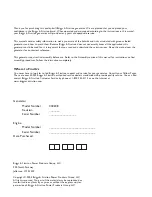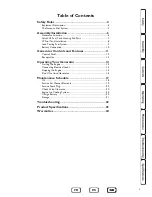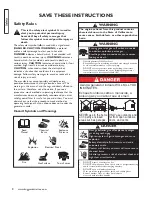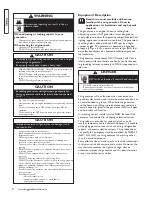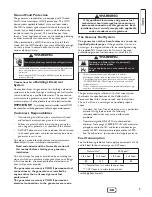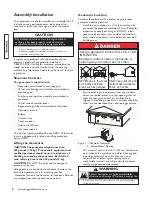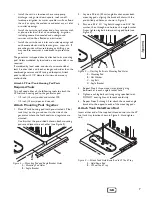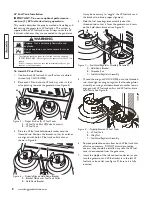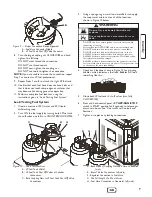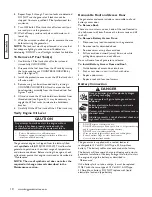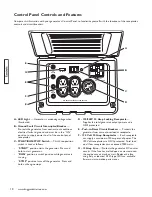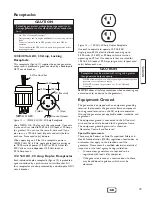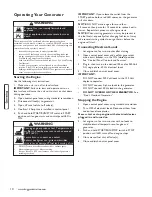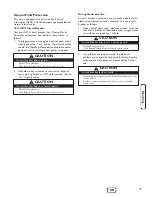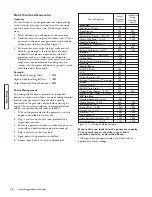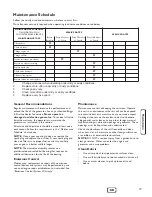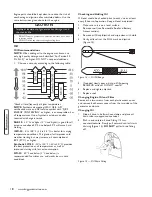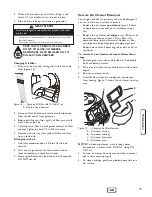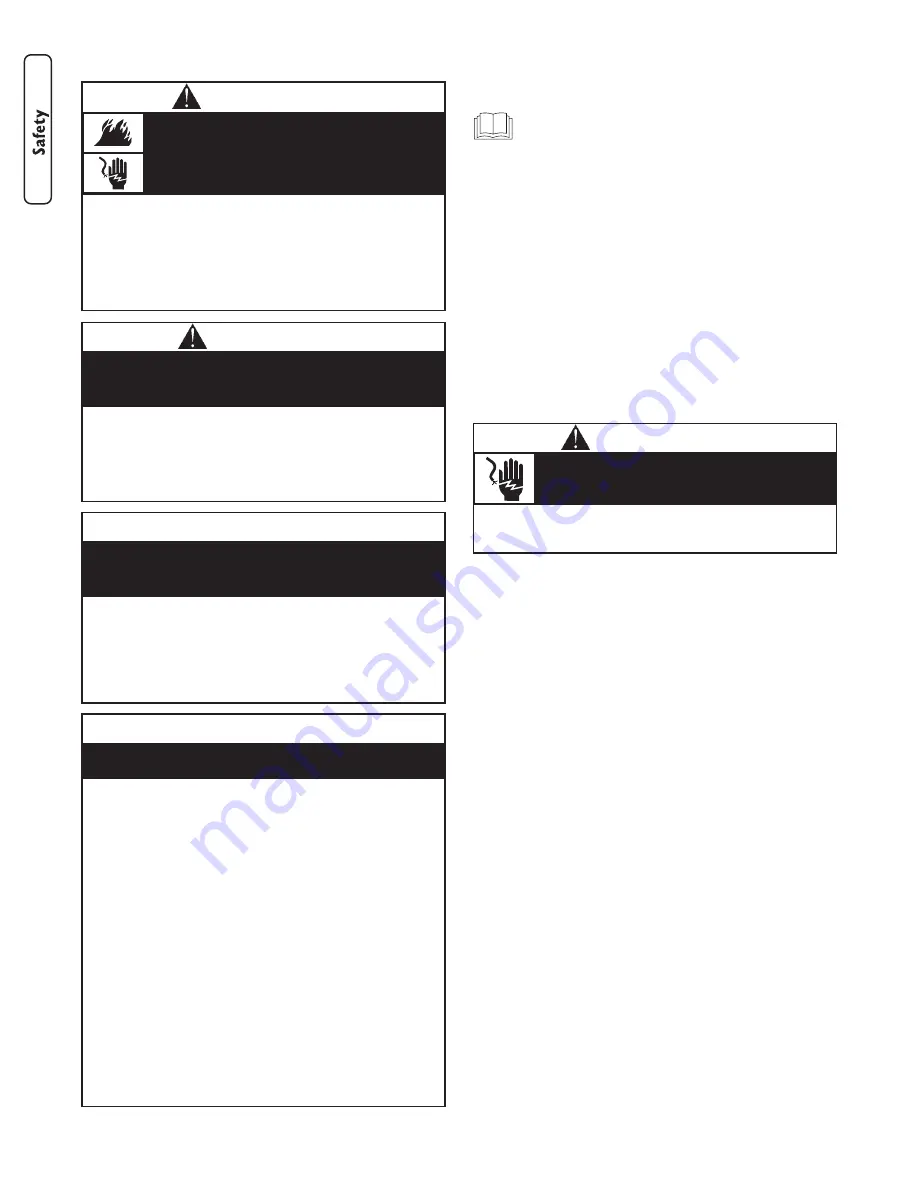
4
www.briggsandstratton.com
Equipment Description
Read this manual carefully and become
familiar with your generator. Know its
applications, its limitations and any hazards
involved.
The generator is an engine–driven, revolving field,
alternating current (AC) generator. It was designed to
supply electrical power for operating compatible electrical
lighting, appliances, tools and motor loads. The generator’s
revolving field is driven at about 3,600 rpm by a single-
cylinder engine. The generator is operated on liquefied
propane (LP) gas. It can operate on natural gas (NG) fuel
only after conversion by a licensed professional gaseous
fuel technician.
This generator incorporates GFCI (Ground Fault Circuit
Interrupter) outlet protection and has its neutral bonded
to grounding fastener to comply to OSHA inspections on
job sites.
This generator will not function when connected to a
2 pole transfer switch since its service disconnect also has
a neutral bonded to ground. When both the generator
and the home or building’s service disconnect contains a
neutral bonded to ground, the generator’s GFCI will open
and no outlets will function.
A switching neutral transfer switch MUST be used if the
generator is connected to a building’s electrical system.
This product is intended for residential use as an all-
weather temporary source of electric power. It is capable
of supplying power to loads such as heating, refrigeration
systems, and communication systems. This product does
not qualify for emergency standby as defined by NFPA 70
(NEC). DO NOT use this generator for anything other
than it’s intended purpose.
Every effort has been made to ensure that the information
in this manual is both accurate and current. However, the
manufacturer reserves the right to change, alter or
otherwise improve the generator and this documentation
at any time without prior notice.
•
DO NOT remove the neutral bond.
•
Removing the neutral bond could result in death, bodily injury
and/or property damage.
GFCI will not function if neutral bond removed
DANGER
•
See “Don’t Overload Generator”.
•
Start generator and let engine stabilize before connecting electrical
loads.
•
Connect electrical loads in OFF position, then turn ON for
operation.
•
Turn electrical loads OFF and disconnect from generator before
stopping generator.
Exceeding generators wattage/amperage capacity can
damage generator and/or electrical devices connected
to it.
CAUTION
•
Use generator only for intended uses.
•
If you have questions about intended use, ask dealer or contact
Briggs and Stratton.
•
Operate generator only on level surfaces.
•
Adequate, unobstructed flow of cooling and ventilating air is
critical to correct generator operation.
•
The access door and roof must be installed whenever the unit is
running.
•
DO NOT expose generator to excessive moisture, dust, dirt, or
corrosive vapors.
•
DO NOT start engine with air cleaner or air cleaner cover
removed.
•
DO NOT insert any objects through cooling slots.
•
DO NOT use the generator or any of its parts as a step. Stepping
on the unit can cause stress and break parts. This may result in
dangerous operating conditions from leaking exhaust gases, fuel
leakage, oil leakage, etc..
•
If connected devices overheat, turn them off and disconnect them
from generator.
•
Shut off generator if:
-electrical output is lost;
-equipment sparks, smokes, or emits flames;
-unit vibrates excessively.
Improper treatment of generator can damage it and
shorten its life.
CAUTION
•
FOR RESIDENTIAL USE ONLY. DO NOT use this generator for
anything other than its intended purpose.
•
DO NOT tamper with governed speed. Generator supplies
correct rated frequency and voltage when running at governed
speed.
•
DO NOT modify generator in any way.
Excessively high operating speeds increase risk of injury
and damage to generator.
Excessively low speeds impose a heavy load.
CAUTION
When adjusting or making repairs to your
generator:
•
Disconnect the spark plug wire from the spark plug and place the
wire where it cannot contact spark plug.
When testing for engine spark:
•
Use approved spark plug tester.
•
DO NOT check for spark with spark plug removed.
Unintentional sparking can result in fire or
electric shock.
WARNING
Summary of Contents for 40248
Page 29: ...This page reserved ...
Page 57: ...Esta página está reservada ...


